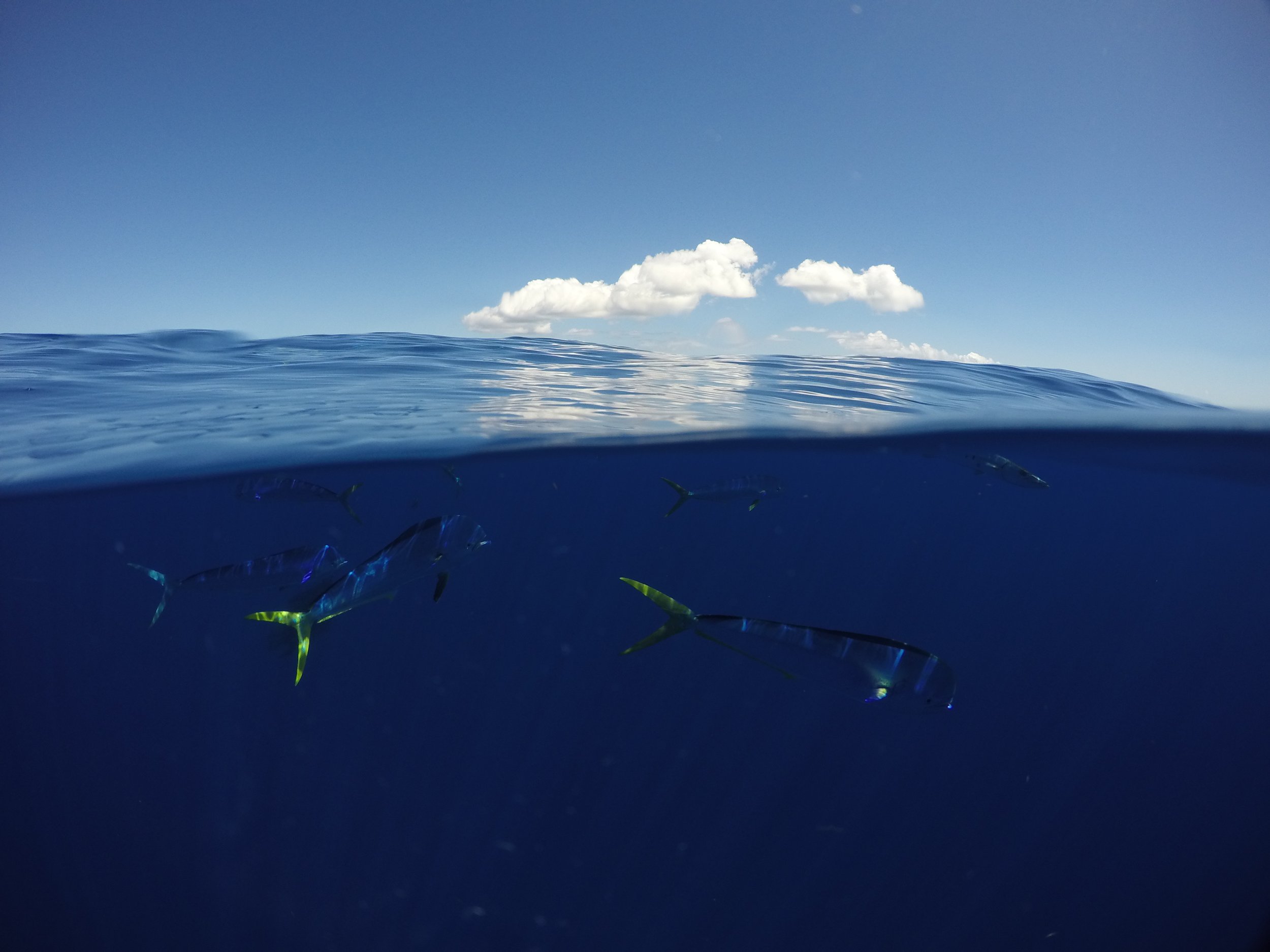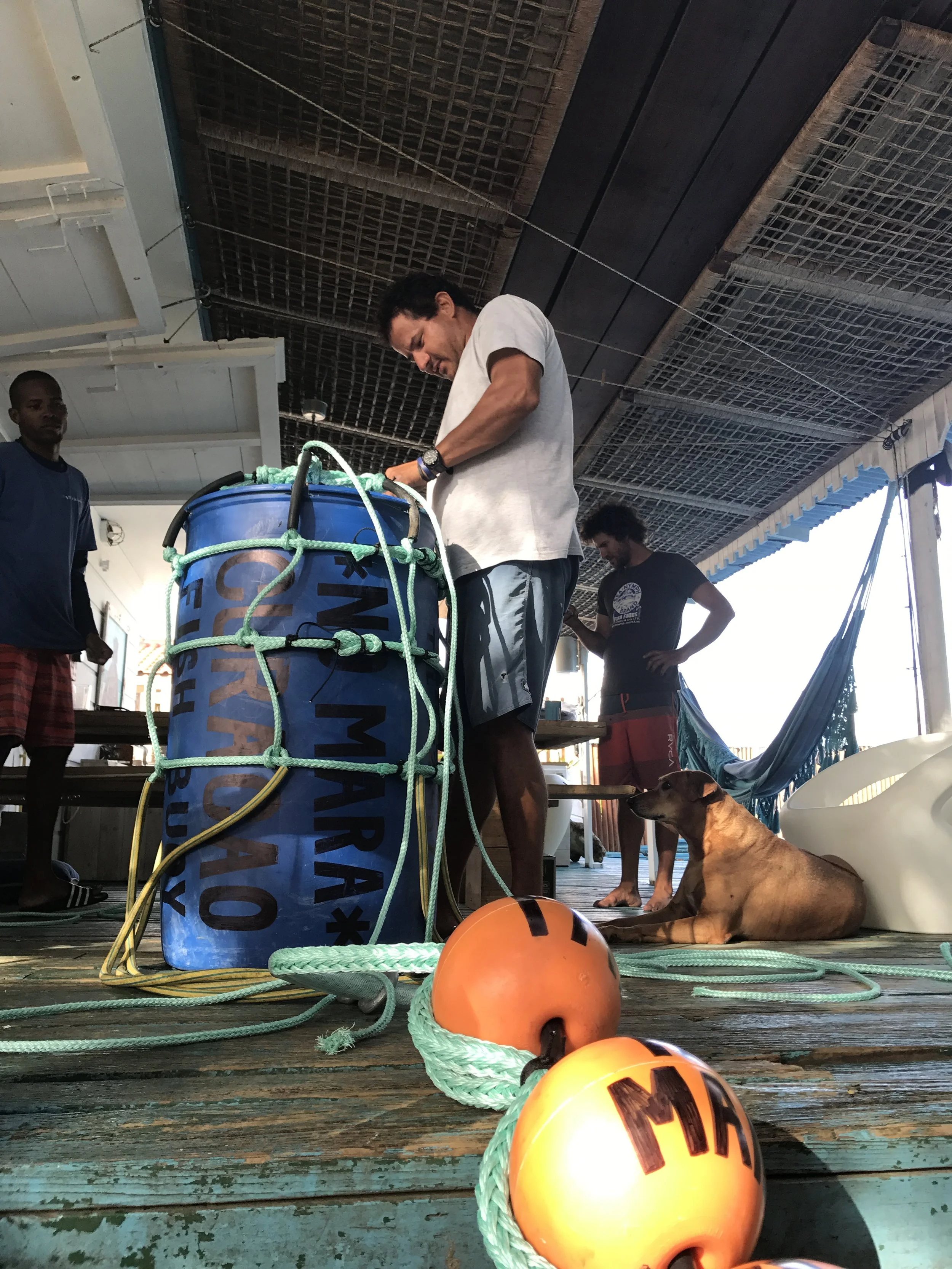Caribbean Mfad fisheries
Antigua, Guadeloupe, and throughout the Caribbean
The marine ecosystems that sustain small-scale fisheries are increasingly threatened, imperiling the millions of people who depend on these resources for food and income. Small-scale fisheries that rely on coral reef ecosystems are particularly vulnerable, as these ecosystems have been degraded by overfishing, pollution, disease outbreaks, and coral bleaching. One potential solution aimed at improving the livelihoods and food security of small-scale fishers and their communities and shifting fishing pressure from reef to pelagic species is the use of Moored Fish Aggregating Devices, or MFADs. Consisting of floating materials anchored in offshore waters (typically 300-6000 meters), MFADs capitalize on the natural tendency of pelagic fish to aggregate around a floating structure for protection and foraging. By aggregating fish to known locations, MFADs can reduce fishers’ search costs and increase catch per unit effort (CPUE), facilitating access to species such as tunas (Thunnus spp.), mahi mahi, (Coryphaena hippuurus), and billfish (e.g., blue marlin or Makaira nigricans). This can improve fishers’ livelihoods and local food security, while ideally reducing fishing pressure on inshore resources.
While MFAD fisheries can offer social and ecological benefits to small-scale fishing communities, poorly regulated MFAD fisheries can lead to undesirable outcomes including overfishing, conflict among users, and pollution of marine ecosystems as MFADs degrade and are eventually lost. Reducing the costs of fishing through MFAD deployment may increase fishing effort beyond optimal levels, potentially resulting in overfishing when unmanaged. Unrestricted MFAD deployment can reduce the effectiveness of each MFAD in aggregating fish, degrading benefits to fishers while increasing marine debris inputs. Without complimentary management on inshore fisheries, MFADs can also be relatively ineffective in reducing fishing effort on reefs.
Along with a team of collaborators from the Bren School of Environmental Science & Management and the French research institute IFREMER, I have been working to understand the implications of MFADs for Caribbean small-scale fisheries through interviews with fishers as well as fisheries catch, effort and trade data. We hope to use our findings to inform programs currently utilizing MFADs as a fishing enhancement tool in the Caribbean and around the globe.
Collaborators & acknowledgements: Julia Lawson, Maria Ignacia Rivera-Hechem, Juan Carlos Villaseñor-Derbez, Olivier Guyader, Steve Gaines, and the Bren School’s H. William Kuni Fellows Research Fund.
Publications:
Wilson, M., J. Lawson, M. Rivera-Hechem, J.C. Villaseñor-Derbez, S. Gaines. 2022. Evaluating Conditions for Moored Fish Aggregating Device Fisheries Development in the Caribbean and Bermuda. Frontiers in Marine Science.
Wilson, M., J. Lawson, M. Rivera-Hechem, J.C. Villaseñor-Derbez, S. Gaines. 2020. Status and trends of moored fish aggregating device fisheries in the Caribbean and Bermuda. Marine Policy.
Wilson, M., O. Guyader, S. Gaines, A. Stier, B. Halpern. Limitations in fishers’ transitions from inshore to offshore resources. In prep.



